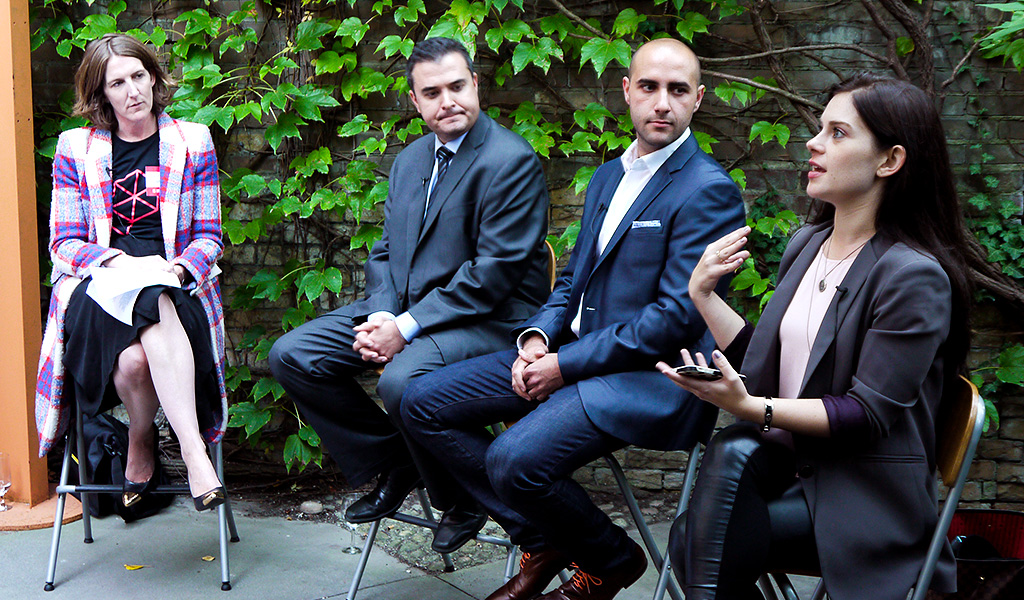Rewriting the playbook on crisis communications
If you had to face a scandal, which of the following do you think would be the most difficult to overcome?
- Misuse of funds
- Sex scandal
- Dog fighting ring
- Drugs
- Domestic abuse
- Racism
Welcome to Scandal Survivability Speed Round, a game we imposed on the panelists of our fourth Co-Pilot Storytelling Series, an in-house event designed to host some of Toronto’s most forward-thinking communicators, where we discuss current events, topics and trends in effective PR, journalism, brand marketing and digital strategy.
Michael Edwards, co-founder of Adrenaline Digital, thinks sex scandals are easiest to overcome because “we’re desensitized to them now.” Panelists were unanimous in thinking that domestic abuse is the hardest scandal to survive – with the caveat that there needs to be a video.
Welcome to the strange and sometimes cynical world of crisis management.
The theme of last night’s event, Doug Ford is My Co-Pilot, reconsidered the first commandment of crisis communications – admit, apologize and make amends – in light of the Ford Brothers’ success doing, well, precisely the opposite. The discussion provoked ideas about dirty tactics and the changing rules of media engagement, the impact of social media, seismic falls from grace and epic comebacks (honourable mentions go to Anthony Weiner for the former and Michael McCain of Maple Leaf Foods for the latter), and how not to say “I’m sorry.”
“the worst way to apologize is to say sorry only because you got caught.”
Joining Michael Edwards on our Co-Pilot panel were John O’Leary, Manager of Communications, Coca-Cola Canada, and Robyn Doolittle, author of Crazy Town: The Rob Ford Story, and an investigative journalist with the Globe & Mail.
A lively Q&A portion delivered instructive responses from the panel. When asked how not to apologize to the public, O’Leary’s answer was simple but memorable: If you say “Sorry, but,” your apology is bound to flop.
Edwards added that “the worst way to apologize is to say sorry only because you got caught.” In other words, to be effective, a response can’t be improvised. It takes careful planning, extensive practice, and experienced teams to steer an organization through the chaos of an organizational meltdown – before a crisis occurs.
The issues, although often complicated, reminded us that the Rob Ford School of Crisis Communications isn’t for the faint-hearted. Bad things happen and people react. But if guilty, remember this, if nothing else: Just say sorry, and mean it.
Special thanks to members of The University of Toronto, Deloitte, The Ontario Arts Council, Historica Canada, and Metrolinx for attending.

Tune back into Spout soon for an audio recording of our panel discussion.





